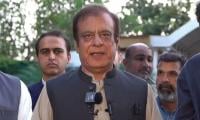The media has permeated our lives so much that now we cannot live without it. It gives us information, entertainment and views on personal and collective affairs round the clock.
Modern media (print, electronic and social media), in its rush for increased market share and political influence seems to have deviated from its social responsibility as a conduit of truth. Sensationalism, propaganda and biased reporting are gradually taking over sober and serious discussions and analysis in the mainstream media. As a result, we have a staggering level of social polarisation, disorientation and chaos all around us.
In the past, family and teachers were the dominant, and most often the only, influencers children had growing up. Today, the influence exerted by the broadcast media, internet, newspapers and theatre is far greater and deeper. Children, who are now exposed to all kinds of media, unconsciously acquire values that are very different from those taught to them at home and schools. Commercials and some infotainment programmes portray self-gratification as more desirable than self-control, materialism as more meaningful than spirituality and playing as more fulfilling than work. Modern advertisements are designed to appeal to emotions and create artificial needs for products.
Talk shows, which should have been platforms to gain deeper understanding of issues and exchange illuminating ideas, happen to be arenas of hooting and shouting. Many hosts instigate their guests to hit one another below the belt and hurl unfounded allegations as a shortcut to achieve the ratings glory. Typically, the debating guests interrupt each other and yell labels of ‘corrupt’, ‘ignorant’ and ‘lota’ at each other, and never show the desire to listen and learn from each other.
Besides this, the hosts demand their individual guests to answer complex questions with simple ‘yes’ or ‘no’ answers. If the guest tries to offer a balanced view on some controversial issue, the host dismisses it and offers his/her own silly explanation. He/she finally ends the programme after thanking the participants for a lively and thought-provoking discussion, and promises the audience a similar show next time.
Social media has gone berserk. It was supposed to empower individuals and decentralise the flow of information but, sadly, it churns out fake and fabricated stories about important issues. Opinions are accepted as verified facts and people only look for information which confirms their cherished beliefs. Contradictory evidence, even if authentic, is either filtered out with disdain or taken as supporting stuff for one’s claims. There are many outlets and fake accounts that keep producing new religions, new sciences, and unbelievably new power structures.
In free societies, there is not much space and power available to governments and independent organisations to determine the direction and contents of social media. Even the big social media organisations find it difficult to keep in check the misuse of their outlets. The only viable option is to educate individuals, especially children, about critical thinking. More than before, contemporary education should be grounded in morality and subjects like sociology, ethics and psychology. Logic should be given equal, if not more, importance in the curriculum at each level of education. In the absence of unreflective minds and uncritical attitudes, at a time when social media is turning us into addicts, our coming generations will be exposed to a new kind of intellectual slavery.
Electronic and print media, which can relatively easily be curbed by governments, should play a more responsible role in sustaining and promoting democratic societies. On the role of print media, Thomas Jefferson wrote that: “the basis of our governments being the opinions of people, the very first object should be to keep that right; and were it left to me to decide whether we should have a government without newspapers or newspapers without a government, I should not hesitate a moment to prefer the latter.”
Asking crucial questions and reporting about policy choices honestly is how governments are held accountable by the people. Honesty in analysis and reporting should be the core value of the media. Playing to the gallery and to the powers that be is toxic, both for the media and for a democratic society.
The writer teaches at the SarhadUniversity.
Email: zebkhan.ba@suit.edu.pk
Political instability has long plagued Pakistan, disrupting governance and economic planning
He was prolific writer and always expressed his views with clarity and firmness
In recent weeks, banks have searched for new borrowers, willing to take fresh debt at below-market rates
Pakistan’s constitution guarantees right to peaceful assembly – a cornerstone of democracy
Developing National WASH Account in Pakistan relies on range of stakeholders at federal, provincial, and district levels
Beauty of arbitration is that no conflicted party needs to sit at negotiating table and enter into dialogue with other...







